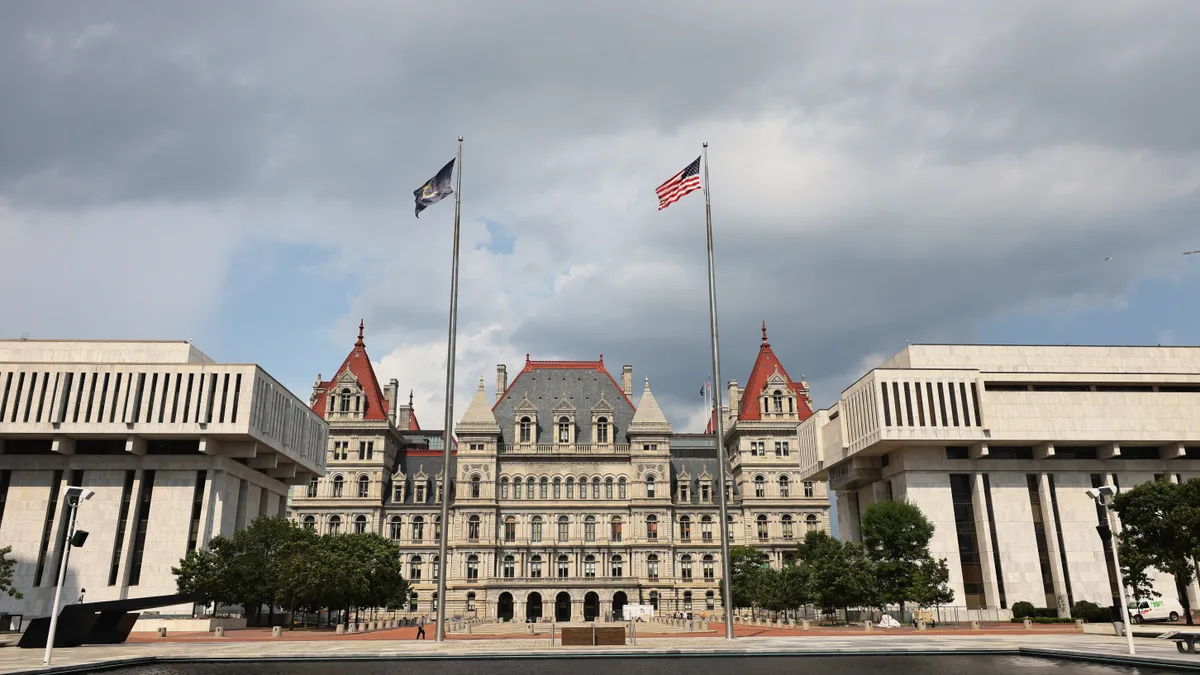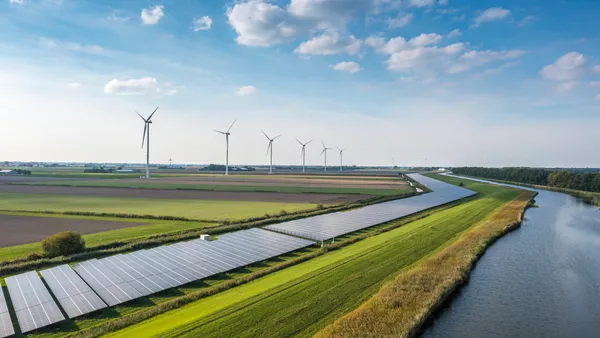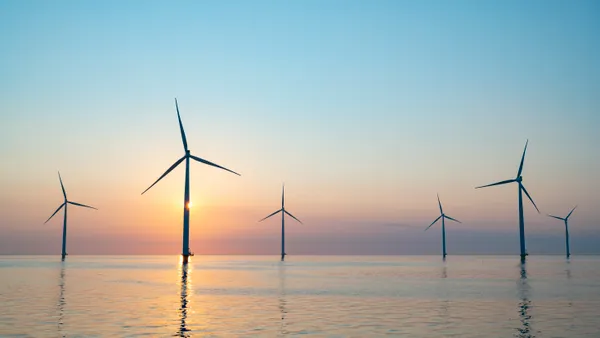Dive Brief:
- The New York Power Authority is the largest public power utility in the country by generation but officials told state lawmakers on Thursday that they do not support legislation enabling it to build more renewables in order to drive down ratepayer costs.
- NYPA cannot develop renewable energy more cheaply than private developers and would not be able to access state or federal tax credits if they did because the utility does not pay taxes, Interim President and CEO Justin Driscoll told lawmakers.
- In July, Driscoll was recommended to lead NYPA by Gov. Kathy Hochul, D, but his position on the Build Public Renewables Act could jeopardize that. The Senate must confirm his appointment, and consumer advocates and some elected officials now say they cannot support him.
Dive Insight:
The Build Public Renewables Act passed the state Senate in June but was never brought for a vote in the Assembly. After the legislative session ended, Assembly Speaker Carl Heastie, D, called a hearing when clean energy and consumer advocates protested that decision.
Heastie’s office did not respond to questions about why a vote was not taken, or if a summertime session could be called to consider the bill. Hearings outside of the state’s legislative session are not unusual, according to local media, and Hochul could call lawmakers back into session.
Supporters say the bill would give NYPA additional powers to construct renewable generation and replace fossil fuels, particularly in areas that could benefit low-income consumers. But opponents say it would distort markets and could drive up costs without helping New York reach its renewables goals.
Generators say independent power investors in New York pay about $1.7 billion in annual property taxes that NYPA would not pay on renewable projects it would own or build. Supporters of the bill say New York is lagging in the development of wind and solar and new authorities for NYPA could help.
The state is targeting 70% renewable energy by 2030, and a zero-emission power sector by 2040.
NYPA owns and operates 16 generating facilities across the state, with the bulk of its generation coming from a pair of hydropower facilities. The utility primarily serves local and state government entities, and municipal and rural cooperative electric systems, and does not retain staff to design or build projects. Instead, it solicits private partners through public requests for proposals, Driscoll explained.
“This is just another potential tool,” Democratic Assembly Member Harvey Epstein, who represents the East Side of Manhattan, said during Thursday’s hearing. “It’s not a mandate. It's just a tool that you could have available to you, if you needed it for a specific development site. Why would you want not to be able to have a tool available to you?”
Driscoll said the bill’s “mandates” — including those directing NYPA to develop renewable energy projects and provide energy services, and limiting what NYPA may charge — “are simply unworkable.”
“Declarations that NYPA shall sell project output to specified entities who either cannot commit or may not desire to agree to binding purchase obligations do not assure that NYPA can meet its financial obligations if it were to assume some role in project development,” he said in written testimony.
“I think it’s just a shift in thinking,” Driscoll told lawmakers at the hearing. “We do projects for pretty much all contracted customers, with the exception being the merchant power that we sell into the market. That’s different than just doing projects without any customers, and just rolling the dice on whether somebody is going to want the power.”
Driscoll also addressed suggestions that because NYPA does not pay taxes, the utility could implement renewable energy projects at a lower cost than the private sector. “While it is true that we do not pay taxes, it also makes NYPA ineligible for the tax credits that private sector companies can monetize and that often makes the difference in whether a project gets built,” he said.
The Independent Power Producers of New York, which primarily represents fossil fuel generators, called the bill “an imprudent proposal that is designed to destabilize energy markets.”
“With major projects in the works from private investors and the benefits that consumers see, there is no reason to shake that up by allowing NYPA into the fold,” IPPNY President and CEO Gavin Donohue said in a statement.
“NYPA does not have a cost advantage in developing renewable generation,” Driscoll said.
The Sane Energy Project, a group advocating for community-controlled renewable energy, said it was disappointed in NYPA’s position.
“Hochul’s administration is doubling down on a private market that is clearly not meeting our renewable energy mandates and ensuring a just transition,” the group’s spokesperson, Lee Ziesche, said in an email. She added that NYPA’s Driscoll “should not be confirmed by the Senate.”
Sen. Julia Salazar, D, representing Brooklyn, tweeted Thursday that she would not support Driscoll’s nomination.
The Senate passed the Build Public Renewables Act “because we know how crucial it is for climate action in New York,” Salazar said. “We cannot then turn around and vote to confirm a NYPA CEO who isn’t up to the task, which is why I wouldn’t be able to support Justin Driscoll’s nomination.”
Driscoll was recommended by Hochul and on Tuesday the NYPA Board of Trustees voted to appoint him as the permanent president and CEO. Drisoll has led NYPA on an interim basis since former CEO Gil Quiniones resigned in October to become CEO of Commonwealth Edison in Chicago.















